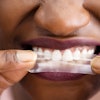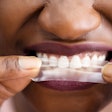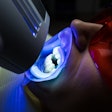A patient's temporomandibular joint (TMJ) status should be established after experiencing whiplash trauma to achieve valid, long-term evaluations in clinical research, according to a new study (Journal of the American Dental Association, July 2010, Vol. 141:7, pp. 879-886).
Researchers have conducted studies regarding whiplash-induced TMJ pain and dysfunction, mainly under the presumption that patients' memory of symptoms remains accurate across time, the authors noted.
In this study, researchers from Umea University assessed TMJ pain and dysfunction in patients at a hospital emergency department directly after they had experienced whiplash trauma. When they followed up with the patients a year later, 40 patients reported previous or current TMJ pain, dysfunction, or both at either examination or at both examinations. They completed a self-administered questionnaire and a comprehensive interview during both examinations.
Among the study's other findings:
- Sixteen patients (40%) had inaccurate recall.
- Recollection errors were addition, omission, and forward and backward telescoping.
- Seven patients incorrectly referred symptom onset to the accident.
"The high frequency of inaccurate recall of TMJ pain and dysfunction one year after whiplash trauma implies that clinicians and researchers should interpret with caution the results of previous studies that relied on retrospective data regarding whiplash-induced TMJ pain and dysfunction," the authors concluded.
Copyright © 2010 DrBicuspid.com



















